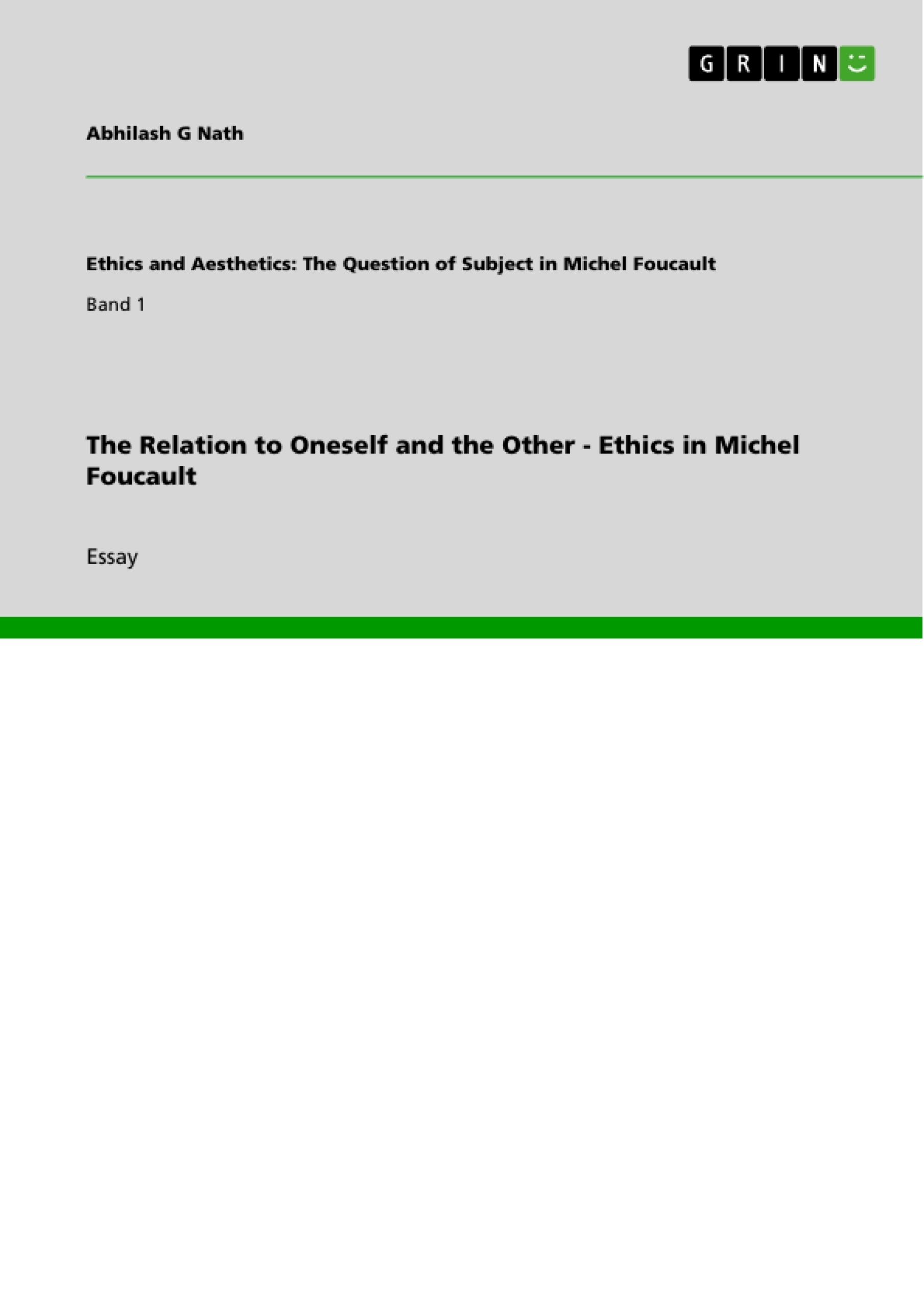In the later years of his life, Foucault associates his genealogical studies of discourse, institutions and practices to the Kantian ‘ontology of ourselves,’ insisting that they, like Kantian ontology, are focused on something within our present in order to initiate change from within. His reflections on the question of “what our present is?” provide an experience of modernity precisely that aspect of it which is mostly fragile or sensitive at the present time, to permit us to emerge from it as transformed. To put differently, the point is to show that what appears obvious to us from the standpoints of modern scientific, legal and moral discourses is not at all so obvious. This fragility of the present beliefs and practices, Foucault argues, must be grasped in the question “what it is?” and should be attempted to transform by using the desire for freedom. In a similar line, Kant argues that “have courage to use your own understanding” is the motto of enlightenment.
Inhaltsverzeichnis (Table of Contents)
- I. The Relation to Oneself and the Other: Ethics in Michel Foucault
- The 'Ontology of the Present'
- Genealogical Studies and the 'Ontology of Ourselves'
- The Fragility of the Present
- The History of Thought and Self-Transformation
- The Practice of Freedom and the Problem of the Other
- Thought and the Play of True and False
- Ethics as a Field of Self-Constitution
- The Genealogy of Thought and Power Relations
- Three Domains of Genealogy
- The Distinction between Morality and Ethics
- The Ethical Dilemma of the Present
- II. The End of Morality and the Aesthetics of Existence
- The End of a Modern Form of Morality
- The Journey to Antiquity and the Revitalization of Techniques of Life
- From For-a-Political-Reason to Its-On-Sake
- The Transformation in the Techniques of the Self
Zielsetzung und Themenschwerpunkte (Objectives and Key Themes)
This doctoral proposal aims to examine how Michel Foucault's writings manifest a general suspicion of modern western normative-morality, through a systematic reading of his works. The proposal aims to evaluate the alternative that Foucault's self-reflection proposes. Here are some key themes explored in this work:- The 'ontology of the present' and the critique of enlightenment
- The role of self-reflection and the relationship to freedom
- The interplay of thought, power, and ethics in shaping the self
- The distinction between morality and ethics, and the search for an aesthetic of existence
- The relevance of ancient Greek ethics in addressing the question of "how to live well"
Zusammenfassung der Kapitel (Chapter Summaries)
- Chapter I: This chapter explores Foucault's critique of Enlightenment, focusing on the concept of 'ontology of the present' and its implications for self-imposed immaturity. It examines how Foucault's genealogical studies, like Kantian ontology, seek to initiate change from within by questioning the obviousness of modern beliefs and practices. The chapter further delves into Foucault's concept of "thought" as a critical activity that establishes the play of true and false and constitutes the human being as a knowing subject, ethical subject, and social subject. Ethics is then defined as a field of self-constitution guided by attitudes, practices, and goals. The chapter ends with a discussion on the relationship between the genealogy of thought, power relations, and the question of relative autonomy of the subject.
- Chapter II: This chapter begins by discussing Foucault's notion of "the end of morality," referring to the end of a modern form of morality derived from medieval Christian ethics. The chapter argues that Foucault's concern with the present does not lead to immorality or nihilism but seeks to expose the weakness of certain aspects of modernity to facilitate change from within. It highlights the shift from self-decipherment to self-examination and change in a game of truth, emphasizing the importance of an aesthetic of existence. The chapter then delves into Foucault's journey to antiquity, specifically examining the problem of "how to live well" as addressed by ancient Greek philosophers. It analyzes the evolution of techniques of the self, from being for-a-political-reason to being for its-own-sake, and the corresponding transformation in the relationship between knowledge and ethical and aesthetical concerns.
Schlüsselwörter (Keywords)
This work focuses on the interplay between thought, ethics, and self-formation within the context of Michel Foucault's genealogical studies. Key terms include: ontology of the present, self-transformation, aesthetics of existence, genealogy of thought, morality, ethics, techniques of the self, and ancient Greek ethics.Frequently Asked Questions
What is Foucault's "ontology of ourselves"?
It is a genealogical study of how we are constituted as subjects, focusing on the present to initiate change from within by questioning seemingly obvious legal and moral discourses.
How does Foucault distinguish between morality and ethics?
Morality often refers to a set of imposed norms, whereas ethics is defined by Foucault as a field of self-constitution and the "aesthetics of existence."
What role does ancient Greek ethics play in his later work?
Foucault looked back to antiquity to study "techniques of the self" and the problem of "how to live well" as an alternative to modern normative morality.
What is meant by the "fragility of the present"?
It refers to the idea that our current beliefs and practices are not fixed or inevitable, but are historical constructs that can be transformed through the desire for freedom.
What are the "three domains of genealogy" mentioned?
Foucault investigates how the human being is constituted as a knowing subject, an ethical subject, and a social subject within power relations.
- Arbeit zitieren
- Abhilash G Nath (Autor:in), 2011, The Relation to Oneself and the Other - Ethics in Michel Foucault, München, GRIN Verlag, https://www.grin.com/document/166666



